Charles O’BRIEN: Complete Orchestral Music, Volume Two
The rediscovery of the music of the Edinburgh composer Charles O’Brien (1882–1968) continues with this second CD of his orchestral music. Two expansive ‘concert overtures’, the bright Schumannesque To Spring and dark, Lisztian The Minstrel’s Curse – symphonic poems in all but name — contrast with two charming miniatures from O’Brien’s youth and a colourful evocation of Scottish life, in a suite consisting of a tone-poem, an heroic elegy and a dancing finale.
Liepāja Symphony Orchestra; Paul Mann, conductor
Listen To This Recording:
- To Spring: Concert Overture, Op. 4
- The Minstrel’s Curse: Concert Overture, Op. 7
- Mazurka
- Berceuse
- I Moorland
- II Voices in the Glen
- III Harvest Home
Scottish Scenes, Op. 17
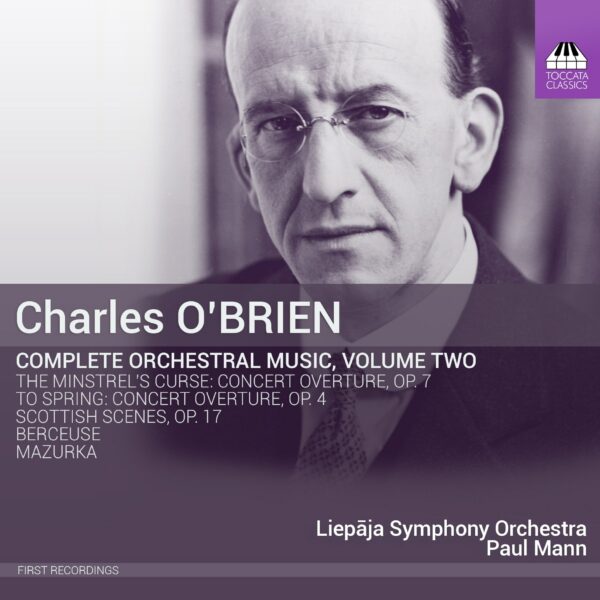
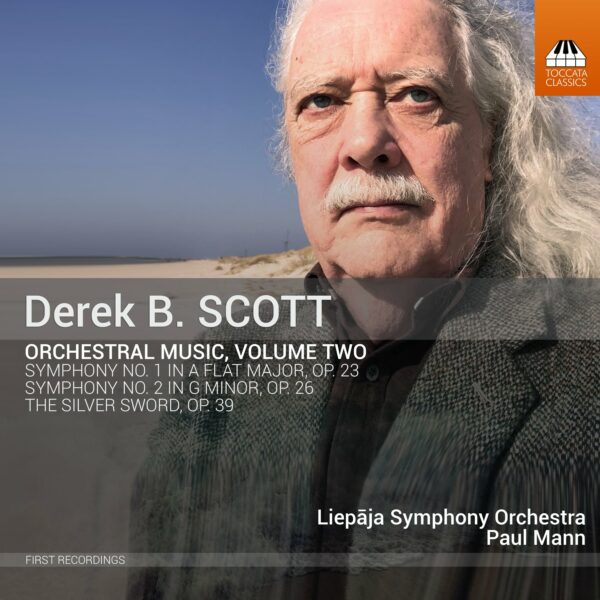
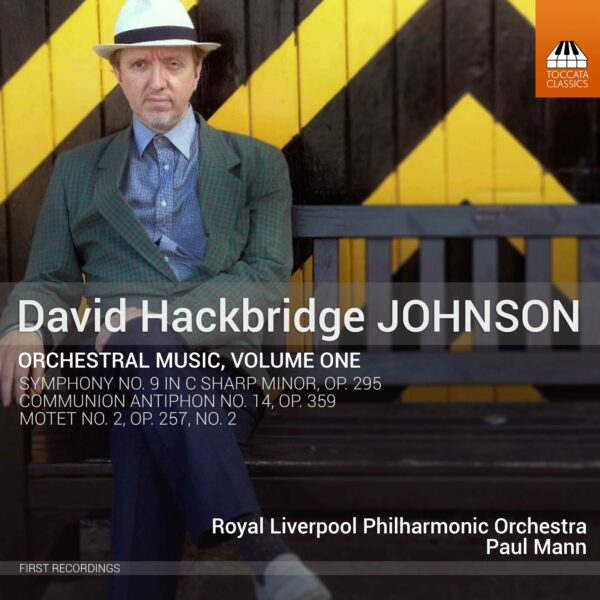
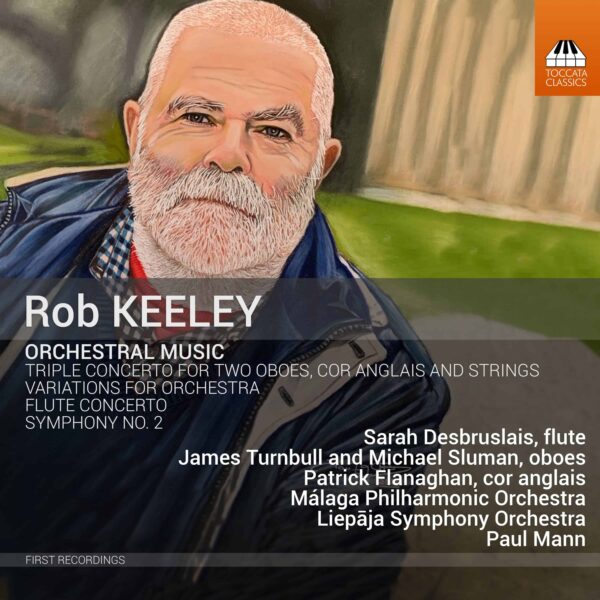
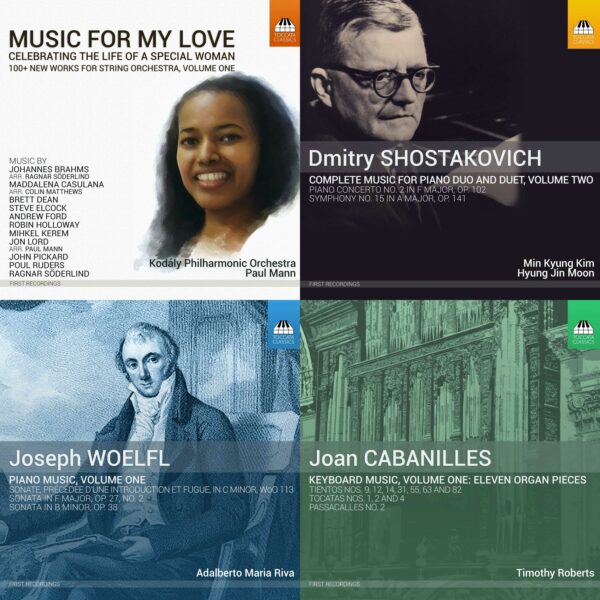
Film Music: A Neglected Art< :
‘I encourage listeners to obtain all three of the O’Brien pieces and welcome him into your library. They will provide many hours of listening pleasures.’
—Thomas Kiefner, Film Music: A Neglected Art<
MusicWeb International :
‘O’Brien’s music sounds as if someone had discovered a pile of lost scores by the Greenock-born composer Hamish MacCunn… it is an admirable rule of thumb for judging the quality of music in this CD. … At bottom line this is music from a composer who was influenced by the romantic school of music but who was tinged with a number of indigenous felicities. … [Mazurka and Berceuse (1898):] The Mazurka is a pleasant little piece that could have been composed by Eduard or Josef Strauss. The scoring of the Berceuse had to be reworked by Mann… The end result is a charming piece of light music. … The three scenes [Scottish Scenes, op.17] present musical pictures of Scotland. Moorland is dark and brooding, yet with an unexpected warmth for such a dramatic landscape. The Voice of the Glen is like a Celtic mother calling to her children from afar. … Harvest Home is a Scottish country dance. All the stops are pulled out for this vigorous and vivacious finale. Charles O’Brien has succeeded in giving a musical portrait of Scotland that does not depend on clichés from the music hall or cinema screen. Admittedly, there are a number of Scotch snaps and melodies that nod to Scottish folksong yet, he has managed to absorb the landscape into his heart and soul. … The musical language used to portray this story [The Minstrel’s Curse] is that of Schumann, Tchaikovsky and Liszt. I loved this ‘concert overture’. … the music is always interesting, exciting, dramatic and disturbing. … Whatever the inspiration for O’Brien’s work To Spring: Concert Overture, op.4, it is delightful, if a little old-fashioned. It deserves a place in the repertoire. … The Latvian orchestra plays with enthusiasm and seem to have a definite flair for evoking the mists and sceneries of Scotland. … This is an excellent CD dedicated to an undiscovered Scottish composer.’
—John France, MusicWeb International
Classical Lost and Found :
‘RECOMMENDED BEST FIND
… The disc begins with two concert overtures written at a time (1904-6) when romantic German composers were much in vogue with British concert audiences. …the influences of Mendelssohn (1809-1847) as well as Schumann (1810-1856) are evident. … Both overtures are highly programmatic, extended-sonata-form creations with the second lasting just over twenty-five minutes. Taking all that into account, they resemble Richard Strauss’ (1864-1949) tone poems. … Weighty scoring turns the initial Mazurka [T-3] into a formal affair. Some may find it could almost be out of Tchaikovsky’s (1840-1893) Eugene Onegin (1877-8). On the other hand, the orchestral version of Berceuse [T-4] was so problematic conductor Mann and the composer’s grandson had to rework it for this recording. With a main theme bearing a striking resemblance to Chopin’s eponymous piano piece (Op. 57, 1844), they managed to come up with a delightful trinket. O’Brien also wrote two sets of Scottish Scenes for piano (1914-7), the first of which he orchestrated in 1929, giving us the three-part suite that concludes this release. … As on volume one (see 31 August 2015) conductor Paul Mann and the talented musicians of the Liepaja Symphony Orchestra do well by O’Brien. They give exhilarating yet sensitive accounts of these selections, making this another outstanding disc of discovery. … the recordings again project a confined, deep soundstage in a reverberant space. The resultant orchestral timbre is accordingly characterized by bright highs, a somewhat congested midrange, and sparse bass. … with repertoire this rare we’re lucky to have what’s here.’
—Bob McQuiston, Classical Lost and Found